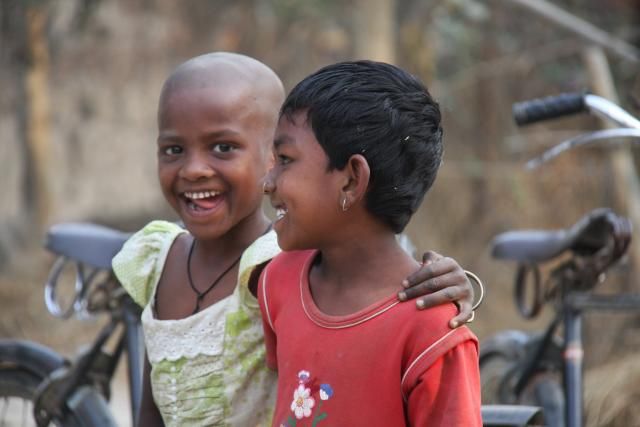Part 2: A Journey for Change

It takes a combination of overnight train trips and long car rides to reach the communities where the Diocese of Durgapur, one of our longtime church partners in India, operates three integrated community development programs. But the journey is well worth it!
Ever since I joined Episcopal Relief & Development in January 2007, I have had the fortune of visiting these communities four times (about once a year), and I have come to know and recognize the faces of many of the participants.
I remember first meeting Mirudula, the leader of a women’s self-help group, in 2007. She had reluctantly agreed to accept her village committee’s request to lead the group, which aimed to empower women by using their collective skills to increase their economic independence. When I met her again yesterday, Mirudula proudly reported that her 13-women-strong group is now a regular recipient of local government labor contracts for village infrastructure projects. Her confidence was inspiring.
When I first met Morshan Bul three years ago, he lamented that the local primary schools were not operating. The government teachers do not regularly report to work in his village, as many live 15 to 20 kilometers away in larger towns and face a lack of public transportation facilities. Thus, Morshan volunteered to form a child coaching center. With locally raised funds, he built a small hut where children up to age nine gather before and after school to do homework and get additional tutoring from trained teachers.
In a conversation a few days ago, Morshan was excited that parents in his village now take greater interest in the education of their children—both girls and boys—and even pressure the government school teachers to be accountable to the villages in which they serve. He expects many of the youth to do great things with the strong foundation of education. His hope was uplifting.
I remember first meeting the development committees that were formed in each village at the beginning of the program to take ownership of the activities. Initially these remote, rural and long-isolated tribal villagers were suspicious of the work of the Church and did not actively participate in managing the program. But as time and trust developed, they became much more involved in the development of their own villages.
Now, these communities are challenging the Church to think outside the box. On this visit, many of the communities expressed the desire to form a joint cooperative federation to directly market their own cottage industries in the major towns, thus eliminating the “middle man/woman” and improving the economic sustainability of the program. Their enthusiasm was contagious, and it was exciting to see how they have become empowered to take action and better their lives.
These are just three of the stories of our strong program partnership with the diocese, and I look forward to learning about and sharing many more stories from the communities.
——————
Nagulan Nesiah is a Program Officer with Episcopal Relief & Development.


